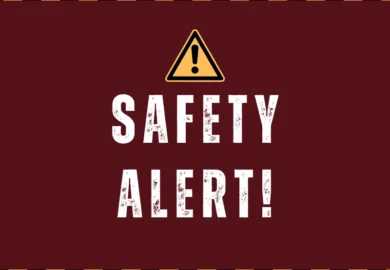August 19th, 2025 (Chicago, IL) – Tandem Diabetes Care is issuing an update to correct a dangerous error on select models of their t:slim X2 Insulin Pumps. This error can lead to an interruption in insulin delivery to insulin dependant patients, leading to a potential spike in blood sugar that could be life-threatening if not treated promptly.
Table of Contents

This error, caused by a speaker-related issue that shows up as a Malfunction 16 alarm to the user, will stop communication between the user’s CGM (Constant Glucose Monitoring Device) and the insulin pump. This results in a termination of insulin delivery. There have been over 700 reported adverse events, defined as high blood sugar and/or an event requiring medical intervention, cumulating to around 59 injuries. To date, no deaths have been reported as a result of this egregious error.
What Is Tandem Doing About The Insulin Pump Error?
Tandem is issuing a software update designed to enhance detection of speaker failure early on. The company will alert users when the update becomes available and request that all users complete the update as soon as possible to ensure the new safety feature is present on their devices.
Additionally, Tandem has issued a notice, sent out to all users of these impacted pumps in the United States, with instructions on what to do in the event of a Malfunction 16 error.
Why This Insulin Pump Defect Is Dangerous
In instances where insulin delivery is interrupted in insulin dependant individuals, hyperglycemia (high blood sugar) events can occur. This can lead to headaches, nausea, blurred vision, confusion, and, if blood sugar gets high enough and goes untreated, organ damage, coma, diabetic ketoacidosis, and death.
High blood sugar is a medical emergency in many cases and should be taken seriously. It can be managed by maintaining a combination of exercise, medication management, and diet. The medication management is one of the most important things in treating both type 1 and type 2 diabetes, as not taking your medication as prescribed can result in hyperglycemia and other complications. An error causing an insulin pump to stop working is extremely dangerous, especially when you’re expecting it to function the way it’s supposed to and it doesn’t.
What Does Hyperglycemia Do to the Body?
If left untreated, hyperglycemia can cause a myriad of problems. This is why making sure you’re getting the medication you need is so important, as diabetes cannot always be controlled by diet and exercise alone. Some common issues associated with long-term hyperglycemia include:
- Cardiovascular Disease
- Nerve Damage
- Kidney Damage
- Eye Damage
- Feet Problems
- Increased Risk of Infection
- Bone and Joint Problems
Importantly, hyperglycemia can also lead to two serious conditions, namely, Diabetic Ketoacidosis and Hyperosmolar hyperglycemic state.
Diabetic Ketoacidosis
Diabetic Ketoacidosis is a serious, life-threatening condition that can be caused by diabetes. Diabetic Ketoacidosis occurs when a lack of insulin levels causes your body to not get enough energy from the glucose in your blood. Because it cannot move it from your blood to your cells, the glucose builds up in your blood stream, and your body starts to break down the fat in your body instead. This is problematic, because a side effect of breaking down these fats is the development of a toxic acid known as ketones. As the ketones enter your blood stream and start to build up, it makes your blood acidic, making your blood’s pH levels too low. This can lead to severe dehydration and other complications, and untreated diabetic ketoacidosis is fatal. Diabetic Ketoacidosis is always a medical emergency.
Hyperosmolar Hyperglycemic State
Hyperosmolar hyperglycemic state is a serious side effect of diabetes caused by blood sugar levels being too high for too long. HHS can cause dehydration and highly concentrated blood, which are both life-threatening. Symptoms can include extreme thirst, frequent urination, and confusion. Hyperosmolar hyperglycemic state is a serious issue and requires immediate medical treatment. Without it, HHS can be fatal.
How Can a Product Liability Lawyer Help if You Were Injured By a Defective Insulin Pump?
Companies that make these important medical devices are expected to maintain a certain duty of care to prevent their products from becoming unreasonably dangerous to consumers.
An experienced product liability attorney at Ankin Law can help you hold negligent companies liable for damages if you relied on their product for medical treatment, it stopped working correctly, and you suffered injuries as a result. At Ankin Law, our attorneys are available 24/7 for legal support, work on a contingency fee structure, and offer free consultations. We have the skills and legal firepower necessary to take on big companies on your behalf. Let us help you get the justice and compensation you deserve.




